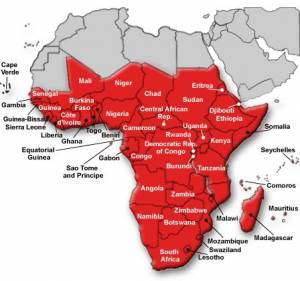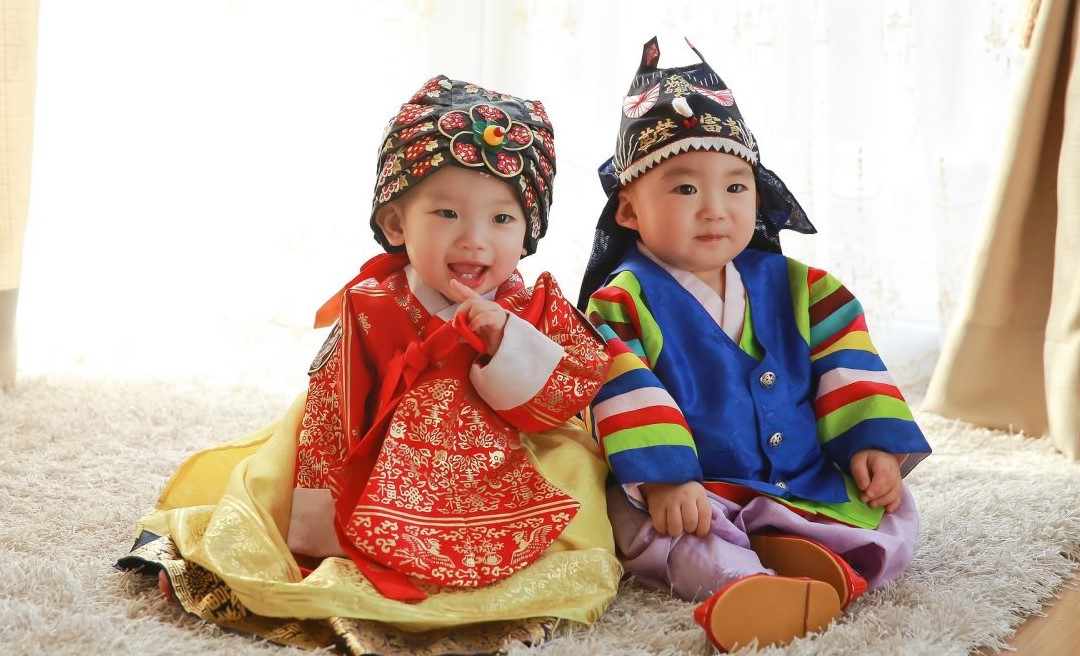Hardly a day goes by without me opening The Korea Times or one of Seoul’s other newspapers and finding a story or two about this country’s most distressing problem—our low birth rate and its long-term demographic implications.
As much as I value old folks, the truth is that we need more babies! I live and work near Gangnam Station, and kids are so few here that when one of them walks down the street, I practically stop and stare. If children are our future, what kind of future are we going to have in light of this dearth of youngsters?
 The statistics are, or should be, familiar to all of us. The fertility rate is 0.92 per woman, well below the 2.1 needed to maintain a stable population. Almost 52 million people currently live in Korea, a number that is expected to peak in four years and then begin to decline. There were about 303,000 births in 2019, a more than 50% drop from 2000. The number of marriages last year also fell to a new low—239,200. These figures bode ill for Korea.
The statistics are, or should be, familiar to all of us. The fertility rate is 0.92 per woman, well below the 2.1 needed to maintain a stable population. Almost 52 million people currently live in Korea, a number that is expected to peak in four years and then begin to decline. There were about 303,000 births in 2019, a more than 50% drop from 2000. The number of marriages last year also fell to a new low—239,200. These figures bode ill for Korea.
A summary of how we got here is as follows. Almost as soon as he seized power in 1961, Park Chung-hee began emphasizing a reduction in the birth rate (more than 6 per woman at the time). Parents were encouraged to have just two  children, or better yet one. A high birth rate equated poverty, and escaping personal and national poverty was a widely agreed-upon goal.
children, or better yet one. A high birth rate equated poverty, and escaping personal and national poverty was a widely agreed-upon goal.
Park’s policy had dramatic results, as the birth rate fell to 3.5 in 1975, to 1.59 in 1990, to 1.08 in 2005 and to the aforementioned 0.92 today. It is ironic that this steep reduction in the number of babies aided the country’s economic development and yet is the cause of our rather daunting future prospects.
A number of pronatalist initiatives have been tried over the last 20 years in an effort to bring more Korean kiddos into the world, but they have proven as futile as they were expensive.
Misery loves company, and we have lots of company. Hong Kong, Puerto Rico, Singapore, Japan, Taiwan, Moldova, China, Cyprus, Italy, Spain, Portugal, Malta, Ukraine and other countries are dealing with much the same problem. One of those surely caught your attention: China, long the most populous nation on earth. Indeed, the Chinese’ one-child policy implemented in 1979 has proven a bit too successful.
If even China is gradually running out of people, this must be a global problem. (The world’s population is expected to top out at 9.7 billion in the 2060s and fall to 8.8 billion at the end of this century.)  Demographers, social scientists and people at the United Nations’ Department of Economic and Social Affairs are struggling to come to grips with the decline in the number of babies being born and its ramifications.
Demographers, social scientists and people at the United Nations’ Department of Economic and Social Affairs are struggling to come to grips with the decline in the number of babies being born and its ramifications.
“Most of the world is transitioning into natural population decline,” said Dr. Christopher Murray of the Institute for Health Metrics and Evaluation at the University of Washington. “Jaw-dropping” is the term he uses to describe how at least 23 countries—South Korea among them—are expected to see their population more than halve by 2100.
Nations that resist the idea of massive immigration will come to realize they have no choice. Minds and borders will be opened gradually. Migratory outflows and inflows will happen on a scale we could not conceive of before.
A couple of countries in our “neighborhood” might seem to be good candidates for sending much-needed workers—Vietnam and the Philippines. They have high birth rates, right? Yes, but not like in earlier times. The former is now 2.04, and the latter 2.55.
The time fast approaches when countries will actually compete for immigrants. There is and will continue to be one region that has a surplus, and I refer to sub-Saharan Africa. If we do not know about Angola,  Niger, Mali, Uganda, Zambia, Burundi, Burkina Faso, Malawi, Somalia, Congo, Mozambique, Nigeria, Ethiopia, Chad, Tanzania, Cameroon, Guinea, Benin and others, perhaps we should.
Niger, Mali, Uganda, Zambia, Burundi, Burkina Faso, Malawi, Somalia, Congo, Mozambique, Nigeria, Ethiopia, Chad, Tanzania, Cameroon, Guinea, Benin and others, perhaps we should.
Although in most cases African birth rates are declining, it’s only slightly and they are so far above our numbers that the solution is clear enough. Two-thirds of the world’s population growth in the next 30 years will derive from countries south of the Sahara Desert.
The bleak scenario for my adopted homeland might be affected by one eventuality—that is, the reunification of North and South Korea. The DPRK’s birth rate has also plummeted, but just to 1.90, still double of what obtains here. They have more babies, children and teenagers than we do. Not only that, they’re Korean. At any rate, societal reorganization here and around the world in the coming decades is a virtual certainty.


13 Comments
Wow! This is really interesting Rich knowing the fact that we are hoping government will implement 2-3 child policy because of the growing poverty in the country, unemployed rate, educational problem and others. Birth rate in developed countries has something to do with the lifestyle cost /choices and birth control is easily accessible compared to developing countries. In the Philippines contraceptives are already available in every health centers but most women refused to use because of some beliefs of its “bad effects”.
Andrea–too many mouths to feed in the Phls (and in sub-Saharan countries), but not enough here in Korea. This has to be balanced somehow. It will be painful, but it must be done.
These demographics and population predictions have been brilliantly described and the associated alarm for the countries and the world. Obviously your emphasis was on the people groups of Asia. But what are these same stats in Europe and the West? Isn’t there a strong world wide influence of certain religions that encourage large families? I can think of two right off the bat. You’d think that families with 2+kids is more common than not. But then, what is a family? With all the cultural revolution and later USA welfare programs, women are encouraged to have children out of wedlock for the extra government stipend. Makes you wonder what the statistics would show on the individual “people-culture” that was being analyzed? From this I see a common thread, government influenced the decline of birth rates in Korea and China, but government influenced a huge increase in America due to welfare rules. Sad on both accounts.
I referenced Spain and Portugal and Moldova and Italy, and they are in Europe. As for the welfare queens in the USA, that’s people taking advantage of the system. The pronatalist efforts I mentioned are meant to do one thing, get more Korean babies.
Richard-I remember being taught in the ’70s that the world was going to be overwhelmed by too many people. Oops-missed that prediction. I looked up the birthrate in the US and it’s about 1.7- well below the replacement number. It’s very challenging raising kids and also very expensive-perhaps the younger generation realizes thats and can’t be bothered. But like all things, the current trend predicts the future until it doesn’t. The ongoing mass migration has profound implications for countries like the US and Korea-we may lose our culture with potentially dire consequences.
Kevin, that 1.7 number in the USA is boosted by lots of Mexicanas having kids by the score. Your penultimate word is correct…the long-range situation is dire. Lose our culture, you are right about that. What happens to Korean culture when we are flooded by people from Burundi, Nigeria, Tanzania, etc.?
I can guess what the culture change will be like without hesitation.
Too awful to contemplate!
Richard ,
As you say, birth is a general problem, not only here in Europe and in the other developed countries of the world. Last year for our country we had the lowest number of births in recent years. Surely we have several causes, one being the very low standard of living. , etc. causes families to give up children. Another cause is migration in search of a job. Strictly speaking in Romania, more people die than are born, so the population ages a lot, for sure if nothing changes the situation can become disastrous. Of course, career is another cause, women think about their career, a good job, a house, a car and last but not least their children, when you wake up that it is already late and it is no longer possible. Those who co-operate should think about this otherwise there will be an inevitable decline in the population.
Elly
Elly, although I did not mention Romania specifically I knew it had similar problems. As there, so it is here–more deaths than births, and that is indication of a serious demographic issue.
I love your writing and the topic as well. I am just wondering how people around the world reconsider having children compared to a few decades ago. All seemingly developed societies are struggling the birth issues due to higher ratio of female job-involvement, unstable future, or higher preference of living solo. I believe that this trend is obviously not ideal direction in the future. I feel like people around the world are not satisfied or happy with kids… Are we living in the societies where are in the lack of happiness or well-being? or people in the contemporary societies put stronger values in the presence for themselves rather than having kids in the future? Thank you for uploading this interesting writing.
You may notice that I did not venture into the reasons–psychological, economic, cultural and so on–for this huge decline in procreation. I focused on what is happening and its consequences. I shudder to think of what Korea may be like in 50 years, and the same for many other countries.
I’d be scared to send a child to school in this day and age myself. I know several younger folks who have tried making babies and can’t. It appears that infertility is a bigger problem these days more than ever but I doubt it ranks anywhere near the top of reasons.
Add Comment